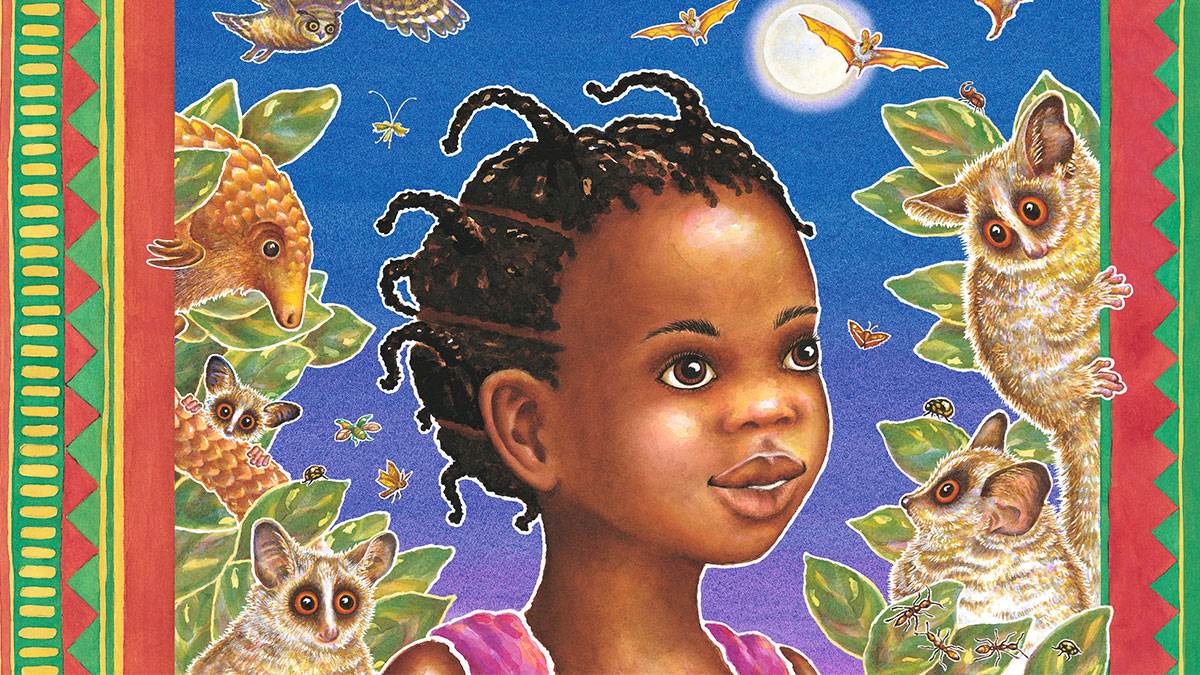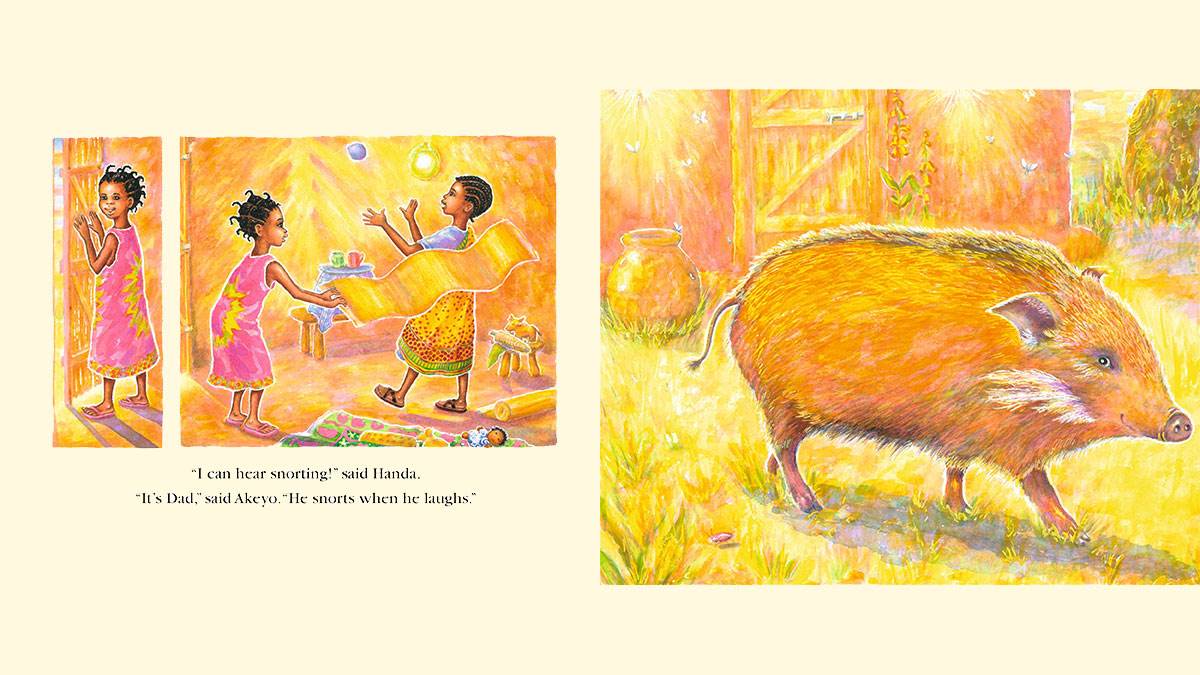25 years since Handa's Surprise: here's why Eileen Browne thinks her picture book has been so loved
Published on: 17 September 2019 Author: Eileen Browne
Writer-illustrator Eileen Browne talks about the enduring appeal of Handa's Surprise, and all about her new Handa adventure: Handa's Noisy Night.
 From the front cover of Handa's Noisy Night
From the front cover of Handa's Noisy Night
This year I'm celebrating the 25th anniversary edition of Handa's Surprise and the publication of Handa's Noisy Night.
I'm thrilled that Handa's Surprise is still going strong and have been asked what I think is its enduring appeal. It's probably a combination of several different elements. The key to the book is the "Look behind you!" joke running through the pictures, where the text pays no heed to the visual story of animals stealing fruit from Handa's basket. Young children delight in being in on the joke and probably want to warn her.
Discovering Kenyan culture
 Illustration from Handa's Noisy Night
Illustration from Handa's Noisy Night
The location of the story is unknown to most readers and this opens up lots of discussion between children and adults: 'Where is it set?' (Kenya, in Africa), 'What's different to where you are?, 'Any zebras around?', 'Why is Handa carrying a basket on her head?' and 'Why don't you carry things this way?'
One of the most enjoyable elements for me has been discovering some of Kenya's animals and fruits and this enthusiasm seems to have passed on to children and teachers. It's humbling to visit schools and witness the wonderful work produced around this story – the dramas, fruit tastings and fabulous wall displays. So the book probably endures with the combination of humour, the discovery of a different location and its capacity to inspire extended learning, including the tasting of delicious fruits.
I love visual jokes, and tried to incorporate one into the second Handa story, Handa's Hen. I didn't manage to do this, but have been able to in Handa's Noisy Night. Handa's having a sleepover at her friend Akeyo's house. She hears strange noises and can't see what's making them – but the reader can! Once I'd worked out the story, illustrating it was a mammoth task. I spent a lot of time looking at the sky's changing colours as day turned into night – and even longer illustrating it!
Drawing giraffes and bush babies

Illustration from Handa's Noisy Night
All the Handa books needed extensive research. For Handa's Surprise, the well-known animals were mostly found in library books, zoos and safari parks. I love drawing from life and until I looked at a real giraffe, hadn't realised what long tongues, whiskers and eyelashes they have. Finding nocturnal south-west Kenyan creatures for Handa's Noisy Night was more difficult. Zoos and wildlife parks had a few, but in daytime they were usually asleep. In London Zoo's "Twilight Zone", bush babies and bats tore around so fast in the semi-dark, that I couldn't draw them.
The most challenging research of all was to find out what the people and their villages and environment would look like. The best help came from Kenyans in London's Tourist Office and High Commission. They taught me about tribes, hairstyles, clothes, names, artefacts and customs and were kind enough to check out my working illustrations.
Providing more diversity in picture books
I'm often asked if diversity in picture books is important to me. A female, black main character is a rarity in this genre. Even though 33 per cent of UK primary school children are BAME (Black, Asian or Minority Ethnic), only 1 per cent (ONE PER CENT!) of 2017's picture books had a BAME lead character. And even though women are half the UK's population, only a third of picture books have a female main character.
The actor playing Handa in a Little Angel Theatre production of Handa's Hen told me that throughout her childhood, Handa's Surprise was the only book she ever saw with someone who looked like her in the pictures.
Gender and race must be intrinsically reflected in all children's media. If it isn't, children grow up seeing inequality as normal. So yes, diversity in picture books is very important.
Read our research on the representation of people of colour in children’s books
Topics: Picture book, Classics, Around the world, Diversity (BAME), Features






Add a comment